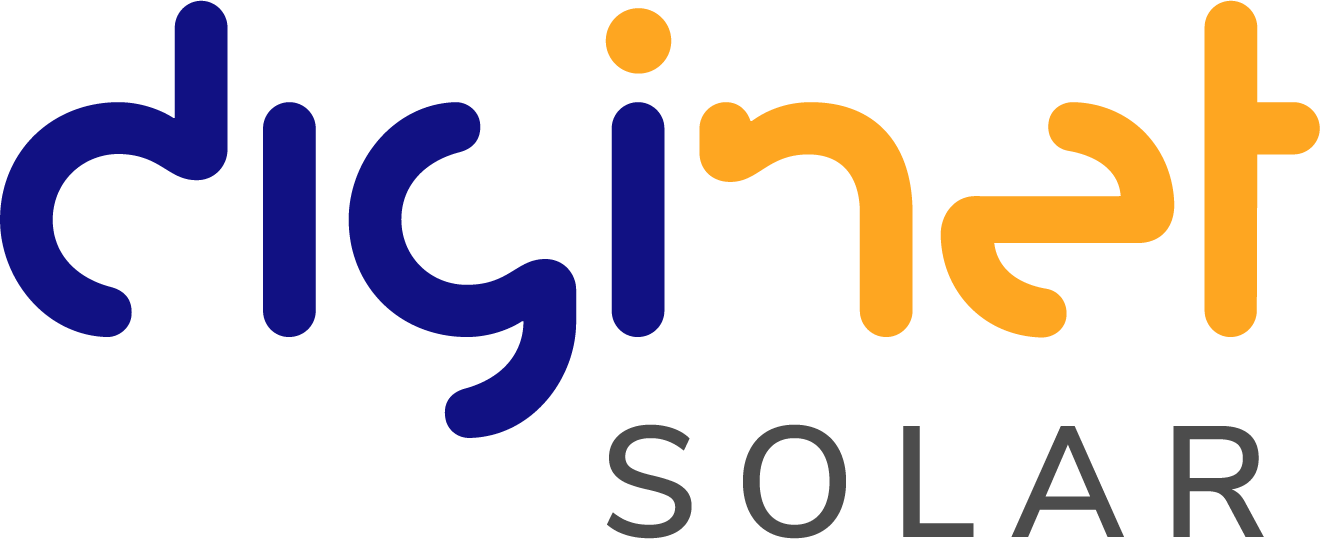Solar energy, the radiant power harnessed from the sun, is a renewable and sustainable source of energy that has gained substantial popularity in recent years. This clean and green energy alternative offers a multitude of benefits, not only for the environment but also for your household’s finances. In this comprehensive guide, we’ll delve into the world of solar energy, exploring how it works, its environmental advantages, and the practical considerations for adopting this energy source for your home.

Diginet Solutions Ltd t/a Diginet Solar is an Introducer Appointed Representative (Financial Services Register No. 994843) of Phoenix Financial Consultants Limited (Phoenix). Phoenix is a credit broker, not a lender. Phoenix is authorised and regulated by the Financial Conduct Authority (FRN: 539195), and offers finance from its panel of lenders. All finance subject to status and credit checks.
Harnessing the Power of the Sun
At the heart of solar energy production lies the solar panel. A typical solar panel is comprised of several key components: silicon cells, a metal frame, a glass casing, and wiring. The vital element in this setup is the silicon cells, which play a pivotal role in capturing and converting sunlight into usable energy. When sunlight, or even daylight, strikes these silicon cells, it sets off a fascinating process.
The Solar Panel Process
During daylight hours, sunlight interacts with the silicon cells, causing electrons to become agitated. This agitation triggers the flow of direct current (DC) energy within the solar panel. However, most household appliances and electronics rely on alternating current (AC) energy, which means that the DC energy produced by the panel must be converted.
This conversion takes place within a device known as an inverter. The inverter’s job is to transform the DC energy into AC energy, which can then power your home seamlessly. This process ensures that your appliances and electronics receive a consistent and usable supply of electricity.
The Surplus Energy Advantage
One of the remarkable features of solar energy systems is their ability to produce surplus energy on days of abundant sunlight. This surplus energy can be managed in two ways:
1. Energy Storage
Surplus energy can be stored in batteries for later use. This stored energy can be a lifesaver during times of high energy demand or when the sun is not shining brightly. It ensures that you have a reliable source of power even during cloudy days or at night.
2. Feeding the Grid
Alternatively, you can choose to send excess energy back to the grid. Energy companies often offer compensation for this surplus energy, effectively turning your solar panels into a small-scale power station. This not only benefits you financially but also contributes to the overall supply of clean energy in your community.
Solar Energy: A Climate-Friendly Choice
One of the most compelling reasons to embrace solar energy is its positive impact on the environment. By generating electricity from sunlight, you reduce your reliance on fossil fuels and decrease your carbon footprint. In fact, switching to solar energy can reduce your carbon emissions by as much as 80% in just one year.
Solar Power Related FAQs
Solar Panels in Winter and Darkness
Solar panels operate year-round, even during winter and on overcast days. They respond to light, not heat, which means they can generate energy even on cold, cloudy days. However, the energy output may be lower compared to sunny summer days.
Rain and Solar Panels
Contrary to popular belief, rain doesn’t hinder solar panel performance. In fact, it can be beneficial, as it cleans any dirt or dust from the panels, enhancing their efficiency. Snow can be a minor obstacle, but in the UK, heavy snowfall is infrequent, and lighter snow tends to slide off or melt due to residual heat.
Determining Solar Power Output
The amount of power your solar panels generate depends on various factors, including the number of panels, the orientation of your roof, and local weather patterns. As a rough estimate, a 12-panel system can generate enough energy to power an A++ dishwasher for a remarkable 4,465 loads over 12 years.
Is Solar Energy Completely Free?
While solar energy can significantly reduce your energy bills, it’s unlikely to make them entirely free. However, you can save as much as 80% on your energy costs by harnessing solar power.
The Importance of Solar Storage Batteries
In the UK, where energy usage tends to be higher during dark winter months, adding a storage battery to your solar panel system is highly recommended. These batteries allow you to store surplus energy for later use, ensuring you have a consistent power supply even during evenings and cloudy days.
Transitioning from Solar to Grid Power
If you ever run out of solar-generated energy, your system will seamlessly switch back to your regular electricity supplier. This ensures you always have a reliable source of electricity.
Selling Surplus Energy to the Grid
In 2020, the UK government introduced the Smart Export Guarantee policy, requiring large energy suppliers to offer export tariffs. These tariffs allow you to sell excess energy to the grid, and the compensation you receive is based on readings from a suitable meter, such as a smart meter. Be sure to explore various suppliers, as the rates they offer can vary significantly.
Maintaining Your Solar Panels
Regular maintenance of your solar panels is essential for optimal performance. While rain can provide some cleaning, deposits from bird droppings, dust, pollen, or dirty rainwater can accumulate and reduce your panel’s efficiency by 5% or more. It is advisable to have your panels cleaned at least once a year, preferably every six months.
Adding Value to Your Property
The installation of solar panels can increase the value of your property. Studies have shown that a typical home with solar panels can command a price premium of up to 2%. In addition, solar panels have become an attractive feature for potential buyers, especially in the context of rising energy costs and environmental concerns.
Join the Solar Energy Movement with Diginet Solar
Diginet Solar is your trusted partner in the transition to clean and sustainable energy. Our expert team is committed to helping you harness the power of the sun, reduce your carbon footprint, and enjoy substantial energy savings. By choosing solar energy with Diginet Solar, you not only contribute to a greener future but also benefit from a lucrative referral program.
EARN £100!
Refer a friend or family member to Diginet Solar, and upon a successful installation, we’ll reward you with £100. It’s our way of saying thank you for supporting clean energy solutions.
Fully Accredited




Ready to Start Saving? Call us
CONTACT US
Get In Touch
Contact Information
Phone:
Email:
Location:
26 Hickory Dell, Gillingham, Kent, ME7 3SL




